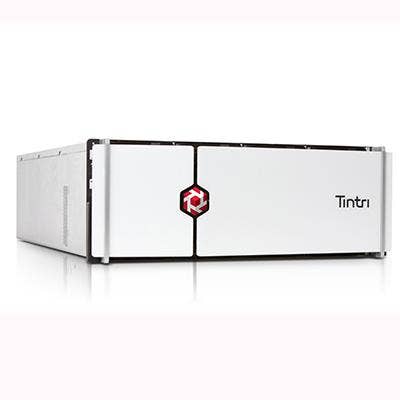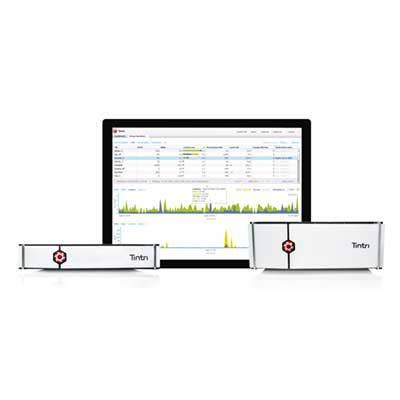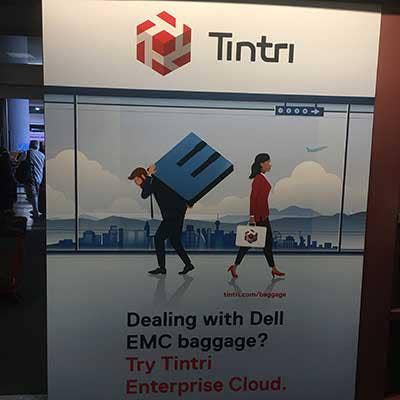IPO-Bound Tintri's S-1 Shows A Fast-Growing Channel Company That's Looking To Pare Down Its Losses

Getting Inside Tintri Via Its Planned IPO
The problem with private companies is that they are so private. It takes the run-up to an IPO to get them to open up about how well they have managed their business to date.
That is the case with Tintri, a Mountain View, Calif.-based developer of virtual machine-aware all-flash and hybrid-flash arrays. The company has talked up its technical achievements, boasting "6x faster" performance for virtual machines on Tintri, with "10x more" density and "98% less management." But now that it is planning an IPO, CRN has looked at the company's most recent S-1 filing to see how it looks as a business. Here, we present some highlights:

What Tintri Does
Tintri specializes in the development of virtual machine-aware storage solutions featuring both flash and hard disk capacity. The company's goal is to provide enterprises and cloud service providers with the ability to host an enterprise cloud platform inside their on-premises data centers and connect it to public cloud services.
The company, founded in June of 2008, has as of April 30 over 1,300 customers including seven of the top 15 Fortune 100 companies.
Tintri's Series F round of funding two years ago brought total funding in the vendor to $260 million to give it a $1 billion valuation.

Tough Environment For Storage IPOs
Tintri is planning for an IPO during an interesting time in the storage industry, as there have been two IPOs in recent years and one company that was headed for an IPO were bought beforehand.
Hyper-converged infrastructure developer Nutanix in late September went public with an initial price of $16 per share, which climbed as high as nearly $47 but is now back in the $18 range.
All-flash storage vendor Pure Storage in October 2015 also hit the public markets at $16 a share and now sits at around $13 to $14. Both Pure Storage and Nutanix have market caps north of $2.5 billion.
Also, the IPO plans of at least one hot storage startup, hyper-converged infrastructure vendor SimpliVity, were squashed when Hewlett-Packard Enterprise acquired them.

Sales Soaring, But…
Tintri's sales have grown quickly the last few years, but the rate of growth has slowed.
Tintri, in its SEC filing, said it had $125.1 million in revenue for fiscal year 2017, its last full fiscal year, which ended January 31. That was up 45 percent over the $86.0 million the company reported for the 2016 financial year.
Sales grew 72.7 percent in 2016 compared to fiscal 2015. Sales in fiscal 2015 were up 92 percent over the year prior.
Sales to U.S. federal, state, and local governments account for under 10 percent of revenue. About 30 percent of total revenue came from outside the U.S. in fiscal 2017.

Losses Increasing Faster That Sales
Tintri claimed a net loss of $105.8 million in fiscal 2017, up less than 5 percent over the loss of $101.0 million in fiscal 2016. The fiscal 2016 loss, however, was up over 45 percent of 2015's loss of $69.7 million, indicating improved finances.
Tintri said that, as of April 30, it has had accumulated losses of $376.0 million. The accumulated losses could grow as Tintri continues to ramp up hiring and investment in developing its product and services offerings.

Sales Quality Improving
Tintri said its software sales are showing strong growth, with stand-alone software license revenue now accounting for 17.4 percent of total revenue. The company also reported 13 deals of over $1 million in fiscal 2017, up from three in fiscal 2015. That, combined with improved scale, lower component costs, and repeat purchased by existing customs gave the company a 65 percent gross margin in fiscal 2017.

The Competition
Tintri in the SEC filing acknowledged competition from numerous established companies, especially large system vendors including Dell EMC, NetApp, Hitachi Data Systems, HP Enterprise, IBM, and VMware. Smaller competitors include Nutanix, Pure Storage, and Nimble Storage, which in March was acquired by HPE.
Tintri is not shy about competing, as seen in this poster Tintri set up in the baggage claim area of the Las Vegas airport to greet attendees of the Dell EMC World conference in May.

Channel Is Key To Success, Or To Failure
Tintri depends on channel partners and distributors for a substantial majority of its sales, with 89 percent of fiscal 2016 and 85 percent of fiscal 2017 sales coming from partners. The company also depends on its channel partners to manage the customer sales process and to generate sales opportunities. Tintri had 388 global channel partners as of April 30 and it plans to increase that number.
"If we fail to maintain existing channel partners or develop relationships with new channel partners, our business, operating results and financial condition may be adversely affected," the company wrote in the SEC filing.

'Huge Fan' of Tintri
Aaron Cardenas (pictured), CEO and founder of P1 Technologies, a Hermosa Beach, Calif.-based solution provider and Tintri channel partner, said he is a huge fan of the company and has already sold Tintri technology to a dozen large enterprise accounts in Southern California.
"We haven't had a single issue," Cardenas told CRN. "Every client says it’s the best product they own. I'm glad to see they are doing an IPO."
Cardenas said the biggest problem with Tintri to date is that it is a company with nearly no marketing. "They've done an abysmal job of marketing," he said. "I call it the best storage company you've never heard of."
The IPO could be a selling point for Tintri, or not, Cardenas said. "Look at Nutanix, Pure Storage, and Nimble Storage," he said. "They're stock price charts looked like ski slopes.